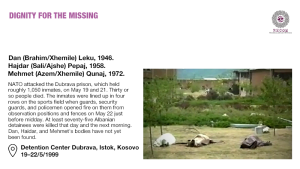
Dan, Haidar, and Mehmet’s bodies have not yet been found.
At noon on May 22, JSO members entered the prison. They threw bombs into shafts where Albanian prisoners were hiding.

At noon on May 22, JSO members entered the prison. They threw bombs into shafts where Albanian prisoners were hiding.
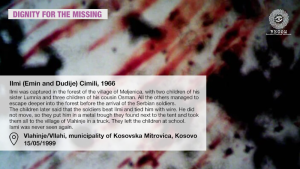
Units of the 58th Light Infantry Brigade (LPBR), the 270th and 271st Military Territorial Detachments of the VJ and the...
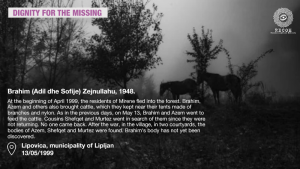
After feeding the animals, Brahim and Azem visited the homes. Cousins Shefqet and Murtez followed them into the village. The...
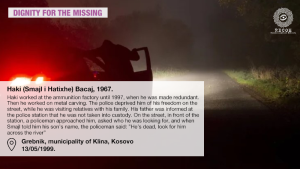
The policeman who informed Smajl that his son had passed away, prior to the conflict was Haki’s colleague; they were...
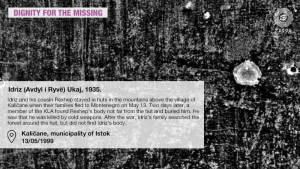
Some units of the 7th pbr VJ and companies 62, 69, 35 and 85 VTO VJ were in the vicinity...
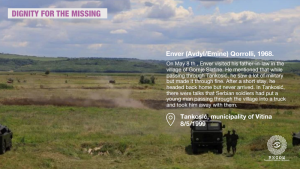
Enver walked through the village of Tankosić on May 8, 1999, where the Serbian military was present. He disappeared while...
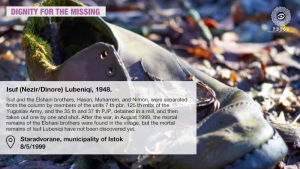
Isuf Lubeniqi was a teacher. His children and wife were on a tractor in a column when members of the...
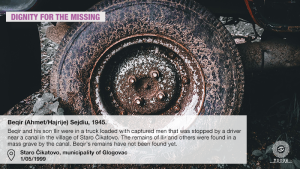
The capture of civilians and the execution by the canal in the village of Staro Čikatovo was an operation conducted...
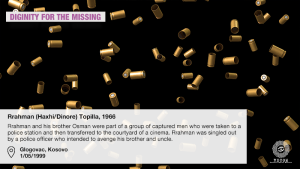
When the police officer took his brother behind the cinema, Osman heard a burst of gunfire. Rrahman’s body has not...
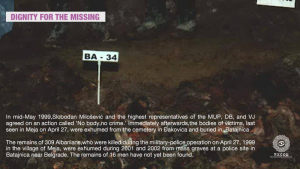
Decades on, not a single flower adorns the site of the 7 graves in Batajnica, where the bodies of victims...
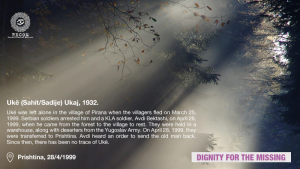
The KLA soldier heard the order for the old man to be returned to the village. Ukë was never seen...
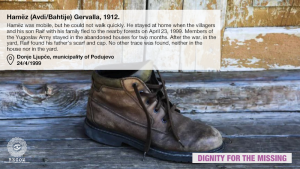
Hamëz was left alone when his family fled the village. When they returned, they found no signs of violence, but...







This website was created and maintained with the financial support of the European Union. Its contents are the sole responsibility of the RECOM Reconciliation Network and do not necessarily reflect the views of the European Union.